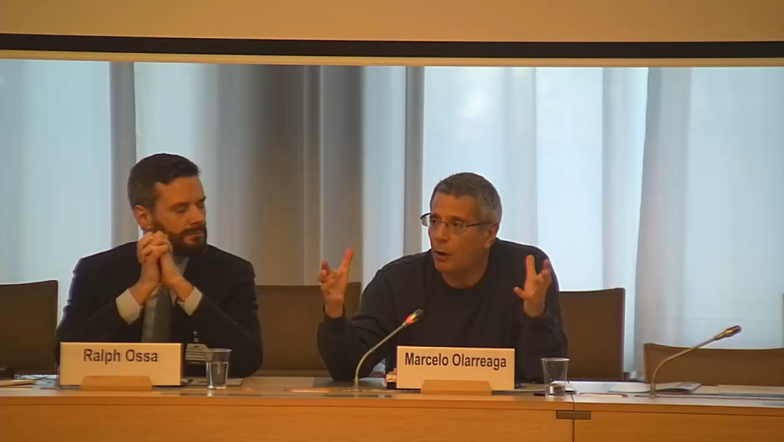WCP Advisory Board speak at WTO Economic Conference

The WTO economic conference titled "Updating Trade Cooperation: An Economic View" was held on 11 December 2018 at the WTO headquarters in Geneva. The first of its kind, the conference looked at pressing issues in international trade cooperation in the present scenario from an economic standpoint. The conference called on the academic community and trade policy experts to assess how trade research can help find solutions to strength and improve the current trading landscape. One of the ways to do this, as discussed in the conference is through economic research using strong evidence and data.
Among notable speakers in the conference were WTO Chairs Program Advisory Board members Marcelo Olarreaga (Professor of Economics, University of Geneva) and Lionel Fontagne (Director of the Centre d’Economie de la Sorbonne, Professor of Economics). Marcelo Olarreaga was part of the session that discussed the value of a rules-based system of international cooperation. The panelists discussed that international cooperation would arise from greater certainty and transparency as well as the exchange of market access. Furthermore, commitments would also help avoid political economy inefficiencies which would result in higher welfare and stronger growth.
Another advisory board member Lionel Fontagne was part of the session on 'The design of trade agreements: Rationale and policy reality check'. The session discussed the economic rationale for reciprocity and non-discrimination as well as special and differential treatment. As part of the session, Lionel Fontagne presented his views during the session, from both macro perspective and micro perspective on trade. He mentioned that on a macro level trade is about gravity, the intensity of bilateral relationships between trading countries and the dynamic shift towards Asia that is happening in the present. On a micro level, he mentioned it is about market power and trade tensions due to massive redistribution of market shares since the inception of the WTO. He also provides some recommendations for reform and how rules can accommodate to address these two perspectives.




